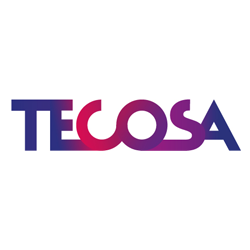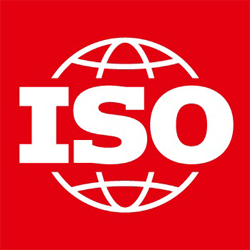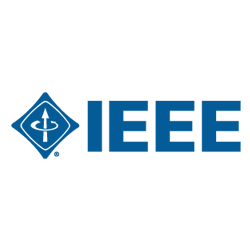Associations
Kvaser actively collaborates with leading organizations and standardization bodies to advance connectivity and communication technologies. Our partnerships with research centers, industry groups, and global standards organizations ensure our solutions remain at the forefront of innovation, and address the communication challenges of modern industries.
See below for more details:
TECoSA – KTH Royal Institute of Technology
Kvaser is proud to be an industry partner of TECoSA (Trustworthy Edge Computing Systems and Applications), a research center based at KTH Royal Institute of Technology in Stockholm. TECoSA focuses on developing new technologies and frameworks that advance edge computing and systems with high demands on safety, security, and real-time performance.
Through this partnership, Kvaser collaborates with leading researchers, engineers, and other industry stakeholders to foster innovation in edge computing, especially in applications that intersect with CAN (Controller Area Network) technology and other Machine to Machine (M2M) communications.

As a company dedicated to advancing connectivity, our involvement with TECoSA allows us to stay at the forefront of groundbreaking research that has the potential to shape the future of communication technologies and embedded systems.
TECoSA’s mission to develop trustworthy, edge-based systems aligns with Kvaser’s own goals of providing reliable, intelligent, and flexible solutions that address the complex challenges faced by modern industries.
For more information on TECoSA, please visit TECoSA at KTH Royal Institute of Technology.

CAN in Automation (CiA)
Kvaser is an active member of CAN in Automation (CiA), the international users’ and manufacturers’ group dedicated to advancing CAN (Controller Area Network) technology. CiA works to develop and promote CAN standards that ensure compatibility and innovation across industries, fostering a global network of CAN experts and companies.
As a long-standing member of CiA and an integral part of its Technical Committee, Kvaser participates in shaping the future of CAN technology by contributing to the development of new specifications and standards. This collaboration allows Kvaser to remain a leader in delivering cutting-edge CAN hardware and software solutions, ensuring that our products meet the highest international standards.
One of these standards is CANopen, an embedded network used in many industrial applications. Continued technical development, to which Kvaser is committed, is facilitating more complex data transmission, and improving overall network performance. This will ensure that CANopen remains a robust and versatile solution for modern industrial applications, with many CANopen profiles to address different use cases as they evolve.
For more information on CAN in Automation, please visit CAN in Automation (CiA).
SAE International
Kvaser is a proud participant and contributor in SAE International, a global association committed to advancing mobility engineering across industries such as automotive, aerospace, and commercial vehicles. SAE sets technical standards that guide the development of safe, reliable, and efficient systems and is known for its pivotal role in shaping the future of engineering technologies.
One of the key areas where Kvaser engages with SAE is through the development and implementation of the SAE J1939 protocol, a critical standard for in-vehicle networking in heavy-duty and commercial vehicles. This protocol, built on CAN (Controller Area Network) technology, defines communication across vehicles’ networks and ensures interoperability between different manufacturers’ systems.

SAE has defined the J1939 application standard for data communication based on CAN, which has become the de facto standard for diesel engines in trucks and heavy-duty vehicles. Beyond trucks, J1939 has influenced other industries, serving as the basis for NMEA 2000 in marine applications and ISO 11783 (ISOBUS) in agricultural machinery. Recognizing this versatility, Kvaser has focused its support on the next-generation J1939 standard, which is built on CAN FD (Flexible Data-rate), a more advanced and efficient evolution of CAN.
Kvaser’s involvement with SAE’s J1939 working groups enables us to stay at the forefront of commercial vehicle networking solutions. By contributing to the ongoing development of these standards, Kvaser ensures that our CAN-based products meet the rigorous demands of the J1939 protocol, offering reliable solutions trusted in industries such as transportation, agriculture, and construction.
For more information on SAE International and their standards, please visit SAE International.

International Organization for Standardization (ISO)
Kvaser engages with the International Organization for Standardization (ISO), an independent, international body that develops and publishes global standards across a wide range of industries. ISO standards ensure quality, safety, and efficiency in products and systems, providing a common framework for companies worldwide.
A key area of Kvaser’s engagement with ISO is through the ISO 11898 standard, which governs the CAN (Controller Area Network) protocol. This foundational standard defines how CAN communication works, ensuring interoperability and reliability across various applications, from automotive systems to industrial automation.
Kvaser is active in ISO’s Technical Committee 22 (TC22) on Road Vehicles and its Subcommittee 31 (SC31) on Data Communication, representing Sweden through SIS (Swedish Institute for Standards). The main focus within this committee is on developing and maintaining standards for CAN, LIN, and other data communication protocols used in vehicles. Most of the work related to CAN involves adopting the advancements made by the CAN in Automation (CiA) organization, while Ethernet-related work leverages developments from IEEE 802.
Kvaser’s contributions extend beyond automotive systems. Data communication standards play a vital role across many sectors, and Kvaser’s expertise is integral to ongoing collaborative efforts. One notable project is the joint initiative “Secure High-Speed Mobile Data Communication,” involving multiple committees, including TC22/SC31, TC127/SC3/JWG16, TC82/SC8, TC23/SC19, and TC23/SC15. This project builds upon the foundational work carried out by TC22/SC31, aiming to enhance the security and performance of mobile data communication systems.
By contributing to and adhering to ISO standards, Kvaser ensures that our products meet the highest international benchmarks for quality and performance. Our active participation in ISO’s standardization efforts allows us to offer cutting-edge solutions that align with global best practices, helping our customers implement safe and reliable communication networks across a wide range of industries.
For more information on ISO and its standards, please visit International Organization for Standardization (ISO).
Institute of Electrical and Electronics Engineers (IEEE)
Kvaser is actively engaged with the Institute of Electrical and Electronics Engineers (IEEE), the world’s largest technical professional organization dedicated to advancing technology for the benefit of humanity. IEEE develops industry-leading standards that influence a wide array of sectors, including electrical engineering, computing, and telecommunications.
IEEE is a massive organization, and IEEE802 is one of its many components. IEEE802 encompasses various networking and communication standards, including 802.3 (Ethernet), 802.1 (Time-Sensitive Networking or TSN), 802.11 (WiFi), and 802.15 (ZigBee).

Among these, Kvaser is primarily active in IEEE802.3, which focuses on Ethernet, particularly the cable-based communication used in automotive and industrial applications. Today, IEEE802.3 is actively working on 14 specialized standards tailored for these sectors.
By collaborating within IEEE, Kvaser stays at the forefront of emerging trends and innovations in connectivity and networking. This partnership enables us to design CAN-based solutions that meet global standards and are ready to integrate with cutting-edge technological control systems, fostering innovation in a range of industries.
For more information on IEEE and their standards, please visit Institute of Electrical and Electronics Engineers (IEEE).